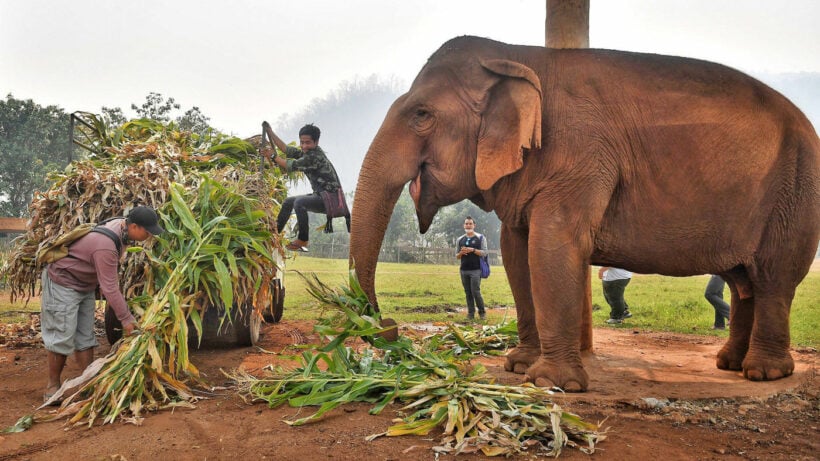Unemployed elephants in Thailand’s north trek home

The Covid-19 crisis has affected the livelihoods of countless millions of Thais… not all of them human.
Elephant camps in Chiang Mai, and elsewhere in Thailand’s north, have been devastated by the drop in tourism, forcing some to close and having to leave their elephants without food to survive. More than 100 are now marching up to 150 kilometres back to their home provinces.
The situation has become critical. World Animal Protection, based in London, says as many as 2,000 elephants are at risk of starvation because their owners are struggling to feed them.
Chiang Mai’s Save Elephant Foundation has been promoting the elephants’ return to their natural habitats. The foundation supports fundraising efforts to feed animals still housed at tourist parks, but believes it’s good for them to return to their natural environment where they can learn to be more self-sufficient. Since April, more than 100 of the animals have marched from all over Chiang Mai back to their homeland in Mae Chaem, where members of the Karen ethnic minority live and traditionally keep elephants.
Save Elephant’s founder, Saengduean Chailert, says the project to send unemployed elephants home is in response to desperate appeals from their owners. The group promotes settling elephants where they can live alongside villagers in sustainable eco-friendly communities, believing many of the animals are abused at some high-profile tourist attractions.
Sadudee Serichevee owns 4 elephants in Chiang Mai’s Mae Wang district. He followed the foundation’s approach and set up his own small Karen Elephant Experience park with elephants brought from Ban Huay Bong, his wife’s village. But his good intentions were no match for the virus.
“At first I thought the situation would be back to normal within a month or two. At the end of April, I lost all hope.”
He and his wife agreed to bring their elephants back to her village because they could no longer shoulder the monthly expenses of close to 200,000 baht for rental of land and facilities, salaries for handlers and food. Elephants eat as much as 300 kilograms a day of grass and vegetables.
They convinced some other owners to make the 150 kilometre trek on foot with them. Trucking the animals is impossibly expensive for owners of small parks, and elephants can only maintain a walking speed of over 7 kilometres per hour.
Their caravan of 11 elephants, owners and handlers set out on April 30, traveling over hills, on paved and dirt roads. They were greeted by a welcome party on their arrival at Ban Huay Bong last Monday.
SOURCE: Thai PBS World
Latest Thailand News
Follow The Thaiger on Google News:


























